Besa: The Promise est un film de genre Documentaire réalisé par Rachel Goslins
Besa: The Promise (2012)

Si vous aimez ce film, faites-le savoir !
Réalisé par Rachel Goslins
Genres Documentaire
Themes Le racisme, Religion, Documentaire sur la discrimination, Documentaire sur le droit, Documentaire sur la guerre, Documentaire historique, Documentaire sur une personnalité, Documentaire sur la religion, Politique, Religion juive, Documentaire sur la Seconde Guerre mondiale
Note77%










God's House is a documentary film, produced by JWM Productions and directed by Rachel Goslins.
The film follows Norman H. Gershman, an American photographer as he travels to Albania, a mostly Muslim country, interviewing and photographing families who rescued Jews during World War II. Along the way Gershman meets Rexhep Hoxha, a Muslim shopkeeper. Rexhep seeks to fulfill a promise made by his father to the Jewish family they sheltered during Nazi occupation. With Gershman's help, Rexhep embarks on a journey across cultural and religious divides to return a set of mysterious books written in Hebrew to the original owners. On his quest, Rexhep discovers the unknown story of his father’s astonishing act of bravery and selflessness.
Filmed in Albania, Bulgaria, Israel, and the United States, more than twenty in-depth interviews were conducted with survivors, rescuers and other witnesses.
Commentaires
Postez un commentaire :
Suggestions de films similaires à Besa: The Promise
Il y a 0 films avec le même réalisateur, 8965 ayant les mêmes genres cinématographiques, 12785 films qui ont les mêmes thèmes (dont 60 films qui ont les mêmes 11 thèmes que Besa: The Promise), pour avoir au final 70 suggestions de films similaires.Si vous avez aimé Besa: The Promise, vous aimerez sûrement les films similaires suivants :
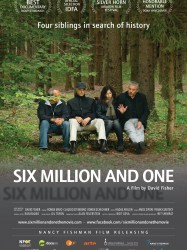
Six Million and One (2012)
, 1h33Genres Documentaire
Thèmes Le racisme, Religion, Documentaire sur la discrimination, Documentaire sur le droit, Documentaire sur la guerre, Documentaire historique, Documentaire sur une personnalité, Documentaire sur la religion, Politique, Religion juive, Documentaire sur la Seconde Guerre mondiale
Note66%





Joseph Fischer's memoir was discovered only after his death. His children refused to confront it, except for David, the filmmaker, for whom it became a compass for a long journey. When David found it unbearable to be alone in the wake of his father's survival story and in his struggle not to lose his sanity, he convinced his brothers and sister to join him in the hope that this would also contribute to releasing tensions and bring them as close as they used to be. His siblings, for their part, couldn’t understand why anyone should want to dig into the past instead of enjoying life in the present. The journey eventually leads the Fishers into the dark depths of the B8 Bergkristall tunnels, part of the Austrian KZ Gusen II concentration camp, where their father endured forced labor during the Holocaust. Illuminated only by flashlights, they seek meaning in their personal and family histories and undergo surgical and revealing discussions about family, survival and individualism only to come to the realization that they are unable to fully understand their father's past and the events that haunted him. Joseph Fischer's last couple of weeks at Gunskirchen concentration camp, were an inhuman experience that blocked his writing. In order to find out what his father failed to describe about Gunskirchen's liberation David located veterans of the 71st Infantry Division who liberated the camp. The elderly soldiers are still haunted and traumatized by the horrific sights they came across when entering the camp. Through their journey, the Fishers become emblematic of the entire second generation who are still grappling with the experience of their survivor parents.
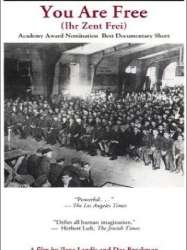
Ihr zent frei (1983)
, 20minutesGenres Documentaire
Thèmes Le racisme, Religion, Documentaire sur la discrimination, Documentaire sur le droit, Documentaire sur la guerre, Documentaire historique, Documentaire sur une personnalité, Documentaire sur la religion, Politique, Religion juive, Documentaire sur la Seconde Guerre mondiale
Note67%






Fotoamator (1998)
, 52minutesRéalisé par Dariusz Jabłoński
Genres Guerre, Documentaire, Historique
Thèmes Le racisme, Religion, Documentaire sur la discrimination, Documentaire sur le droit, Documentaire sur la guerre, Documentaire historique, Documentaire sur une personnalité, Documentaire sur la religion, Politique, Religion juive, Documentaire sur la Seconde Guerre mondiale
Acteurs Artur Brauner
Note72%






Reshimat Ahava (2000)
, 1h30Genres Documentaire
Thèmes La famille, Le racisme, Religion, Documentaire sur la discrimination, Documentaire sur le droit, Documentaire sur la guerre, Documentaire historique, Documentaire sur une personnalité, Documentaire sur la religion, Politique, Religion juive, Documentaire sur la Seconde Guerre mondiale
Note69%





After the death of their parents, Filmmaker David Fisher feels that his family has grown apart and that his siblings are focused on their careers and relationships with their spouses and children. Fisher believes that a search for their sister, who was allegedly taken from their parents at birth, will help them bond.
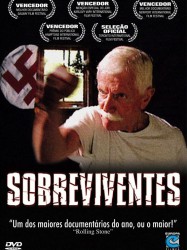
Fighter (2000)
Réalisé par Amir Bar-Lev
Genres Documentaire
Thèmes Le racisme, Religion, Documentaire sur la discrimination, Documentaire sur le droit, Documentaire sur la guerre, Documentaire historique, Documentaire sur une personnalité, Documentaire sur la religion, Politique, Religion juive, Documentaire sur la Seconde Guerre mondiale
Note73%





 , 1h4
, 1h4Réalisé par Matej Mináč
Genres Documentaire, Historique
Thèmes Le racisme, Religion, Documentaire sur la discrimination, Documentaire sur le droit, Documentaire sur la guerre, Documentaire historique, Documentaire sur une personnalité, Documentaire sur la religion, Politique, Religion juive, Documentaire sur la Seconde Guerre mondiale
Acteurs Karel Reisz
Note81%





Partez à la rencontre de Nicholas Winton, véritable héros d'avant-guerre. Jamais considéré comme tel, cet homme a pourtant sauvé 669 enfants à la veille de la Seconde Guerre mondiale. Dans la capitale tchécoslovaque, alors qu´il se préparait pour des vacances au ski, le jeune Nicholas Winton va organiser une extraordinaire opération de sauvetage d'enfants juifs menacés par les nazis.
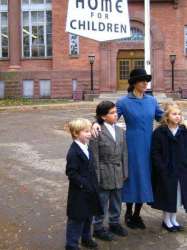 , 1h5
, 1h5Origine Canada
Genres Documentaire
Thèmes L'enfance, Le racisme, Religion, Documentaire sur la discrimination, Documentaire sur le droit, Documentaire sur la guerre, Documentaire historique, Documentaire sur une personnalité, Documentaire sur la religion, Politique, Religion juive, Documentaire sur la Seconde Guerre mondiale
The documentary tells the story of Chief Justice Inspector Friedrich Kellner and the ten-volume secret diary he wrote during World War II in Laubach, Germany, to record the misdeeds of the Nazis. The movie uses reenactments and archival footage and interviews to recount the lives of Friedrich Kellner, who risked his life to write the diary, and of his orphaned American grandson, Robert Scott Kellner, who located his grandparents in Germany, and then spent much of his life bringing the Kellner diary to the public.
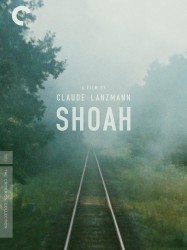
Shoah (1985)
, 9h26Réalisé par Claude Lanzmann
Origine France
Genres Documentaire, Historique
Thèmes Le racisme, Religion, Documentaire sur la discrimination, Documentaire sur le droit, Documentaire sur la guerre, Documentaire historique, Documentaire sur une personnalité, Documentaire sur la religion, Politique, Religion juive, Documentaire sur la Seconde Guerre mondiale
Acteurs Claude Lanzmann
Note86%





Longue méditation douloureuse sur la singularité des crimes nazis et la douleur de l'Homme survivant, le film prend le parti de n'utiliser aucune image d'archives. Seuls des témoignages de rescapés, de contemporains ou d'assassins sont montrés. Quelques séquences ont été rejouées ou préparées (ainsi le récit poignant d'un coiffeur, Abraham Bomba) mais la plupart ont été tournées en caméra directe, traduites à la volée par l'un ou l'une des protagonistes.
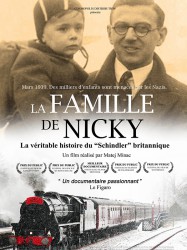
La Famille de Nicky (2011)
, 1h36Réalisé par Matej Mináč
Genres Drame, Documentaire
Thèmes L'immigration, Le racisme, Religion, Documentaire sur la discrimination, Documentaire sur le droit, Documentaire sur la guerre, Documentaire historique, Documentaire sur une personnalité, Documentaire sur la religion, Politique, Religion juive, Documentaire sur la Seconde Guerre mondiale
Acteurs Klara Issova
Note80%





"La famille de Nicky" est l'histoire extraordinaire de Nicholas Winton, surnommé le Schnindler britannique, qui avant le début de la seconde guerre mondiale, entre mars et août 1939, a sauvé 669 enfants tchèques et slovaques, pour la plupart juifs, du génocide nazi. Le film mêle fiction, documents d'archives inédits, et témoignages émouvants des protagonistes de cette histoire, parmi lesquels Nicholas Winton en personne et Joe Schlesinger, journaliste à la CBC et narrateur du film. La "famille" de Nicholas Winton compte aujourd'hui plus de 5 000 personnes dans le monde entier, qui lui doivent la vie.

Marion's Triumph (2003)
, 50minutesGenres Documentaire
Thèmes L'enfance, Le racisme, Religion, Documentaire sur la discrimination, Documentaire sur le droit, Documentaire sur la guerre, Documentaire historique, Documentaire sur une personnalité, Documentaire sur la religion, Politique, Religion juive, Documentaire sur la Seconde Guerre mondiale
Acteurs Debra Messing
 Connexion
Connexion